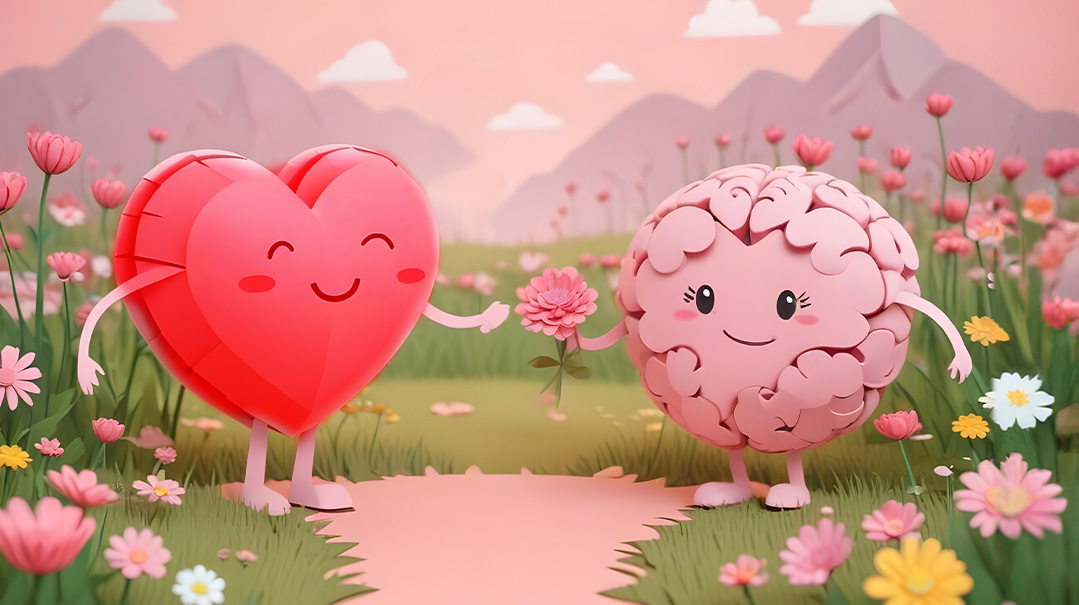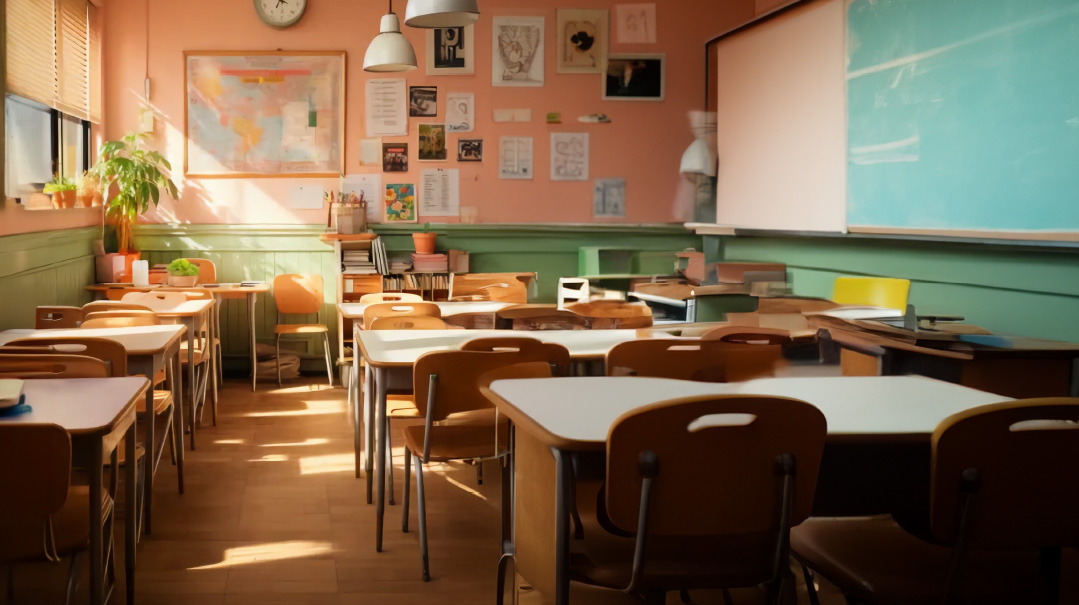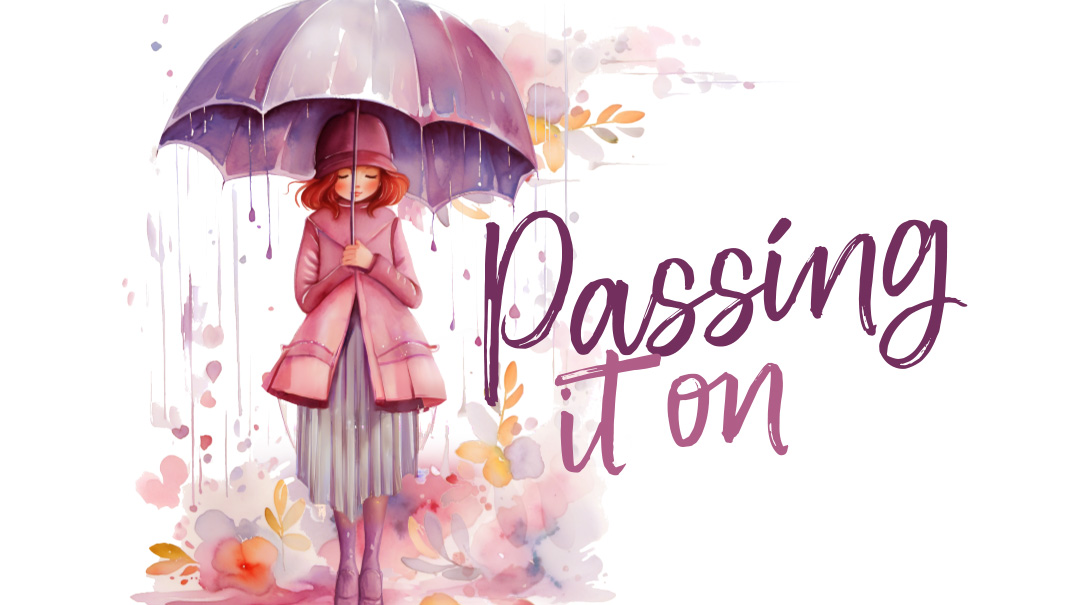The Music of Miracles
| December 5, 2023From the stage of Carnegie Hall to her beautiful Shabbos table, Joni Miller sees Yad Hashem throughout her journey back to Yiddishkeit

IN a black and white photograph, a small girl sits at the piano, wearing her best party dress, a white one with short puffy sleeves.
Her hair is brushed straight and bangs neatly trimmed, though some stubborn curls are springing up at the sides. Eyes intent with concentration, her arms hover over the keyboard of the piano with expert posture. This was Joni Miller’s first publicity shot, used for her debut performance at the famed Carnegie Hall. She was just four years old.
Joni’s exceptional musical talent was discovered on a trip to visit family in Los Angeles. “I heard a melody on the radio, went over to the piano, and started playing it. I must have been three-and-a-half at the time,” Joni says. “My grandfather was in the room with me, and when he saw what I could do, he yelled for my mother, ‘Chanale! Chanale! You gotta come in here! You gotta hear this!’”
When Joni and her parents returned to their Flatbush home, where they lived a Jewish but non-observant life, her mother signed her up for lessons with a husband-and-wife piano teaching team in their neighborhood. The wife took the beginner students, and when they became more advanced, she would pass them along to her husband to continue their studies. It only took young Joni three weeks to “graduate” to the more advanced level. Six months later, she was playing a Mozart sonata at Carnegie Hall.
Joni studied with that teacher for a few years, but one day he told her mother, “I’ve taken her as far as I’m able to. She needs something more than I can give her.” At the age of seven, she was accepted to the Juilliard School, which was the beginning of her being trained for the life of a professional musician. Instead of making afterschool playdates, Joni was busy traveling from Brooklyn to Manhattan for two piano lessons a week in addition to other advanced music training. On top of that was the many hours of practicing that was required to be successful.
After five years of being at Juilliard, Joni started preparing for a big milestone event — performing a concerto, a solo, with a full orchestra. But tragically, Joni’s life was about to change. Her mother became very ill and no longer had the strength to take Joni into Manhattan for her musical training.
When Joni was 12, her mother was nifteres, and her world came crashing down. Not only was any training to be a professional musician abruptly stopped, but her home environment was no longer functional. “My father would go off to work in the morning, thinking that I had gone to school, but really, I was hiding in my closet, in the dark. I didn’t want to ever come out.”
While eventually she had to come out and rejoin the world, she wasn’t any less alone. At a time when teens are starting to enjoy shopping and think about their personal style, Joni wasn’t even given basic clothing necessities, like shoes that fit her feet, even when the school tried to intervene. When her father eventually remarried, the situation got even worse, and at 16, Joni left home. On her own, she worked at a gas station and hung around with other lost souls.
“Then one day, out of the blue, I woke up and realized that I couldn’t live like that anymore. I had enough self-esteem from my earlier years to know that this was not where my story ended. I knew I was going to do something with my life,” remembers Joni. From all those years of disciplined training to be a musician, her skills of self-control and focus helped her pull herself back from the brink of disaster.
She returned to studying music, but because of the gap in her studies, Juilliard wouldn’t take her back as a student. Instead of being paralyzed by this rejection, Joni regrouped and tried a different path, traveling north to Boston to study at the Berklee College of Music. Joni muses, “I don’t know if resilience is something that you can teach, or something that just has to be experienced. I learned resilience through the school of hard knocks. Every time I’ve been knocked down, I stay in the corner for a minute, but then I brush myself off and get back up again.”
AT Berklee, she learned jazz, musical arranging, and composition. She developed a love of songwriting, and after graduating, moved to Los Angeles to try to find success in the Hollywood industry. While she did find work doing musical arrangements and songwriting, making a living as a musician was tough. “I always had work, but some years were better than others. There were times when I didn’t have enough work to pay rent or put food on the table.” Joni had always been interested in law, so during times when the work was not so steady, she would take temporary positions working in law firms.
“During one of the times I wasn’t working, I got a call from a friend who told me about a newish band that was holding auditions. I needed some money to pay rent, so I auditioned.”
She was supposed to be auditioning to be a back-up singer, which she was not so excited about, but when they found out she could play piano, she was hired to do that instead. “It was a really nice band,” remembers Joni. “It had a whole horn section, backup singers, and the band leader, Greg, who was also Jewish, was an unbelievable guitar player.” They played at many venues around Los Angeles and started developing a good reputation.
One day, someone approached Joni about playing at a big Hollywood event. She told Greg, who responded that he was very grateful, but they would have to turn down the opportunity. Joni was baffled. This was a great gig that paid well, and they didn’t have any other bookings — why wouldn’t he take it? “What’s the problem?” Joni asked.
There was a long pause before he replied, “This might sound funny, but I’m Jewish.” Joni laughed and replied, “I’m Jewish too, what does that have to do with it?” The bandleader explained that he had started becoming more religious, and when he started the band, he made a pledge to never take a job on Shabbos. For the three or four months Joni had been in the band, she hadn’t realized it, but she had never played on a Friday night.
Joni had a million questions, and at a certain point in the conversation, Greg told her, “You have more questions than I can answer. Why don’t you come for a meal at my rabbi’s house, and you can ask him all your questions. The food is great, they sing, you’ll love it.” Joni wasn’t so excited about the idea of going to this random rabbi’s house for a meal, but Greg was persistent. “So on Friday I drove over there and knocked on the door. This lovely lady wearing a beautiful tichel answered and invited me in,” says Joni.
“She asked me if I would like to light Shabbos candles, and I figured that since I was there, I would just go with the flow and have the whole Shabbos experience. She put out two tea lights, and gave me a transliteration of the brachah. After she told me what to do, I lit the candles, and immediately I started to cry like a baby.” A memory of her grandmother came flooding back to her. Her grandmother, who had lived in Los Angeles, would come to visit Joni’s family in New York every spring, and would light candles with a white kerchief on her head.
“What really got me that first night was the singing.” The niggunim sung by the rabbi and his sons was a different kind of music than Joni was used to, and it touched her deep in her neshamah. After that emotional beginning, Joni came back for more Shabbos meals in the community.
“I had been on my own for so many years by this point in my life,” says Joni. “The love and warmth from the L.A. community took away some of the intense loneliness I had been living with. I started to feel, as those meals went on, that maybe I do have a place in this world. People really reached out to me, and I couldn’t believe that people were so warm and welcoming to a stranger.”
Even with the warm welcome, it was a big adjustment as Joni got to know the frum world. “Those first Shabbos meals were such a culture shock. I didn’t dress like anybody there, I didn’t understand the language at all. I remember walking into shul for the first time and standing there listening to the davening. I had no idea what they were saying, but as I looked around I said to myself, “These are my people. This is my nation. This is where I belong.’” But there was still a big gap between saying those words and feeling them.
Despite feeling out of place, Joni continued going into the community for meals and shul, and her neshamah began to wake up. She kashered her kitchen, began dressing more modestly, and started becoming shomer Shabbos. About four or five months after she had committed to keeping Shabbos, the band dissolved. It had accomplished its mission and wasn’t needed anymore. It was a little miracle, just for her.
Committing to keeping Shabbos is a big decision for anyone who didn’t grow up frum, but for Joni, it also meant saying goodbye to a career as a musician. While she would still take jobs that didn’t involve working on Shabbos, it wasn’t enough to make a living.
“It wasn’t an easy decision to make,” Joni says. “But I remember feeling at the time that I wasn’t a kid anymore and that my life needed to go in a different direction. I fell so in love with Shabbos, whether I was with another family or by myself in my apartment, and I couldn’t give that up. I loved Shabbos more than anything, more than my music.
“As the world gets crazier, I enjoy that one day a week that I disconnect from the outside. My phone goes off, I’m not listening to anything, I’m just davening, having my beautiful seudos, being with my family, connecting with Hashem. It’s my oasis in time.”
There was so much she had to catch up on Jewishly, and Joni was eager to learn. “Growing up, we didn’t even light Chanukah candles!” When she bought her first menorah, she got into a conversation with the store owner about her return to observance. He asked her if she was married, and when he found out she wasn’t, he gave her a brachah that by the next Chanukah she should be married — and she was!
After Joni was introduced to her husband and began a new phase of life, she was no longer playing concerts on stage, but instead, spending time taking care of her family and learning Torah. “I don’t have a Bais Yaakov education, I have a public school education and an excellent music education, but ArtScroll has been a great friend of mine,” she says.
The more she learned about Yiddishkeit, the more she wanted to learn. “The first time I realized that the world is not hefker, that there’s an order to it, a plan, it was tremendously comforting. I’ve gone through some very hard things in my life, but as a result, I have a very honest relationship with Hashem. I talk to Him probably most of the day.” Joni also learned to recognize Yad Hashem in her life, to see the constant miracles that helped guide her way.
Twenty years ago, the Millers moved to Lakewood. Shortly after their move, Joni experienced another miracle in the form of a phone call from a woman in Monsey. “I don’t even know where she found me or how she got my number, and I don’t remember her name anymore, but she asked me if I would come and kick off their N’shei event by singing and playing for the ladies. I told her that I didn’t really do that, and that I didn’t even know any Jewish songs.” But the lady was not easily discouraged and replied, “That’s okay, you’ll learn some!”
Not wanting to be rude, but also not knowing how to get out of the conversation, Joni agreed to do the performance. After finally hanging up, she ran up to her daughter’s room and grabbed some Shwekey CDs. It didn’t take her long to learn how to play a few songs, and after that successful event, others followed.
At one performance, a girl came up to her and asked for some help with a song she was playing for her school play. Joni invited her over and showed her what to do. “The next week she called and asked if she could take lessons with me. I said, ‘sure.’ One thing led to another, and before I knew it, I had 26 students.”
Most of Joni’s students are teenagers, and while she went through her own challenging time as a teen, she acknowledges that this generation is facing unprecedented challenges. “Teens are growing up in a very confusing and very often scary world. The distractions are enormous, and it’s very easy to be enticed by the surrounding culture. It requires an inordinate amount of strength to not ‘fall down the rabbit hole,’ so to speak. And yet, with all of this, Hashem has chosen this dor to be the ones to bring Mashiach. They’ve been given an awesome mission, and they are for sure up to the task.”
Last summer, Joni started getting ideas for songs again. “I started writing them down in a little notebook, and after a while, I noticed I really had a lot there!” Joni wanted to record them, and reached out to a neighbor who worked in the industry. He had a lot of suggestions, but none of them were quite what Joni was looking for. “Finally he said to me, ‘you should call Dina Storch.’ ” When Joni got home, she saw she had a message on the answering machine. The miracles continued. The message was from Dina Storch.
While Dina had called about something unrelated, they had a productive conversation which led to Joni connecting with a music producer who, after hearing some of her work, wanted to work with her. The producer booked time at a studio in Williamsburg and brought in studio musicians, a drummer, bass player, and guitar player, all Israelis. Together, they recorded three songs. Though the lyrics are clearly based in Torah, Joni had written the songs in a way that could appeal to any person of faith. It’s something unique that she was able to bring to the world.
Keeping Shabbos
When I was first introduced to the idea of Shabbos, I would drive to a certain family’s home for Friday night dinner, then drive back home to sleep, and return the next morning. One night, after the meal was finished and I was about to leave, the father of the family stood in front of the door. “You are not leaving,” he said.
I was shocked and made up all kinds of excuses about why I needed to get back, things like “My cat needs to be fed, I don’t have my toothbrush,” but we all knew they were just excuses. When I realized he wasn’t going to budge, I agreed to stay.
Once I crossed that threshold and experienced what a full Shabbos was really like, I was hooked and couldn’t go back.
“Each one of us is unique. There has never been, and will never be, another you! No two people have the same eyes or hair or fingerprints or voice. Each one of us has been given a unique mission in the world that only we can fulfill, and that necessitates having our own unique relationship with Hashem.”
Through her reconnection to Yiddishkeit, Joni has brought a deeper meaning to her music, weaving themes of emunah and bitachon into her compositions, creating a harmonious tapestry of her faith and her art. Her journey is a songbook of the power of finding miracles amidst life’s challenges and transforming hardship into a symphony of hope and resilience.
(Originally featured in Cozey, Issue 989)
Oops! We could not locate your form.







